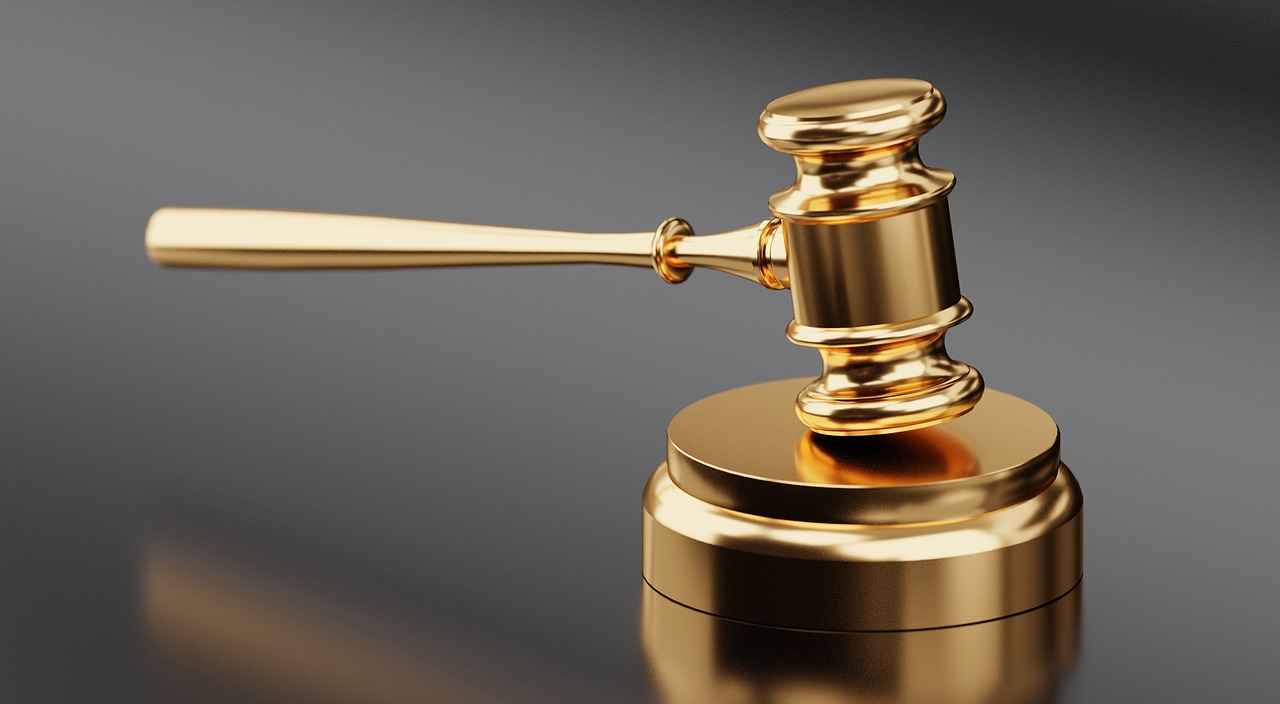This article provides practical guidance on locating qualified and trustworthy legal professionals in Colorado Springs, focusing on various legal case types and effective strategies for hiring the right attorney.
Finding the best legal representation is essential for anyone facing legal challenges. Whether it’s a personal injury case or a complex family law matter, having a knowledgeable attorney can make a significant difference in the outcome of your case. In this article, we will explore various types of legal cases and provide expert advice on how to find the most qualified lawyers in Colorado Springs.
Understanding Personal Injury Cases
Personal injury cases arise from accidents resulting in harm to individuals. These cases can include car accidents, slip and falls, and workplace injuries. To find a specialized attorney, consider those with a proven track record in personal injury law. Look for reviews and testimonials from previous clients, and ensure the attorney has experience negotiating settlements and representing clients in court.
Medical Malpractice: Navigating Complexities
Medical malpractice involves negligence by healthcare professionals that results in injury or harm. It’s crucial to find an attorney with specific experience in this area, as these cases often require extensive knowledge of medical standards and practices. Check for attorneys who have won similar cases and are familiar with the medical community in Colorado Springs.
Breach of Contract: Legal Remedies
Breach of contract cases require attorneys who understand contract law. Identifying a qualified lawyer can help you navigate disputes effectively. Look for attorneys who specialize in business law and have experience with the specific type of contract in question, whether it be real estate, employment, or service agreements.
Property Disputes: Resolving Conflicts
Property disputes can arise from various issues, including boundary disagreements and landlord-tenant conflicts. A knowledgeable attorney can assist in resolving these conflicts amicably or through litigation. Seek out attorneys who have a strong background in real estate law and who have successfully handled similar cases.
Landlord-Tenant Disputes: Rights and Responsibilities
Landlord-tenant disputes often require legal intervention. Understanding both parties’ rights is crucial, and hiring the right attorney can help navigate these issues. Look for attorneys who specialize in housing law and have experience dealing with local landlord-tenant regulations.
Defamation Cases: Protecting Your Reputation
Defamation, whether libel or slander, can severely impact personal and professional lives. Finding an attorney with experience in these cases is vital for a successful outcome. Look for lawyers who have a strong track record in media law and understand the nuances of defamation cases.
Employment Disputes: Navigating Workplace Issues
Employment disputes can involve wrongful termination, discrimination, or harassment. An experienced employment attorney can guide you through the complexities of labor laws. Seek out attorneys who are well-versed in employment law and have handled cases similar to yours.
Product Liability: Holding Manufacturers Accountable
Product liability cases involve injuries from defective products. A specialized attorney can help you pursue claims against manufacturers effectively. Look for lawyers who have experience with product liability cases and understand the intricacies of consumer protection laws.
Wrongful Death: Seeking Justice
Wrongful death claims arise when negligence leads to a fatality. Finding a compassionate and experienced attorney is essential for navigating these sensitive cases. Seek attorneys who have a strong background in personal injury law and a proven track record in wrongful death claims.
Class Action Lawsuits: Collective Legal Action
Class action lawsuits allow groups to sue for common grievances. Identifying a lawyer experienced in class actions can enhance your chances of success. Look for attorneys who have handled class action cases and can demonstrate their ability to manage complex litigation.
Criminal Defense: Understanding Charges
Criminal cases, including drug offenses and theft, require skilled defense attorneys. Knowing what to look for in a criminal lawyer is crucial for a fair trial. Seek attorneys who specialize in criminal law and have a solid reputation in the local legal community.
Family Law: Navigating Divorce and Custody
Family law encompasses divorce, child custody, and support issues. Finding a knowledgeable family law attorney can significantly impact your family’s future. Look for lawyers who have experience in family law and can provide personalized attention to your case.
Immigration Law: Navigating Complex Processes
Immigration cases require attorneys familiar with federal laws and regulations. Understanding how to find the right immigration lawyer can ease your legal journey. Seek attorneys who specialize in immigration law and have a successful history of helping clients with similar cases.

Understanding Personal Injury Cases
Personal injury cases represent a significant area of law, focusing on the harm that individuals suffer due to the negligence or wrongful actions of others. These cases can arise from various incidents, including car accidents, slip and falls, workplace injuries, and more. Understanding the intricacies of personal injury law is crucial for anyone seeking compensation for their injuries.
When navigating personal injury cases, finding a specialized attorney can profoundly influence the outcome of your claim. A personal injury lawyer has the expertise to assess your case accurately, advise you on the best course of action, and advocate for your rights in negotiations or court proceedings. Here are some essential steps to consider when searching for the right attorney:
- Research and Referrals: Start by asking friends, family, or colleagues for recommendations. Online reviews and legal directories can also provide valuable insights into the reputation of potential attorneys.
- Check Credentials: Look for attorneys who specialize in personal injury law. Verify their experience, education, and any accolades or certifications they may have received.
- Consultations: Many personal injury attorneys offer free consultations. Use this opportunity to discuss your case and gauge their understanding and approach. Pay attention to how they communicate and whether they make you feel comfortable.
- Contingency Fees: Most personal injury lawyers work on a contingency fee basis, meaning they only get paid if you win your case. Ensure you understand their fee structure and any additional costs that may arise during the process.
- Track Record: Inquire about their success rate in similar cases. A lawyer with a strong history of favorable settlements or verdicts can significantly increase your chances of a positive outcome.
In addition to these steps, be wary of red flags when hiring an attorney. If a lawyer pressures you to sign a contract quickly or seems more interested in settling than thoroughly investigating your case, it may be best to look elsewhere. Trust your instincts; a good attorney will prioritize your best interests and provide transparent guidance throughout the legal process.
Overall, understanding personal injury cases and knowing how to find a qualified attorney is essential for ensuring that you receive the compensation you deserve for your injuries. Take the time to research and choose wisely, as the right legal representation can make all the difference.

Medical Malpractice: Navigating Complexities
Medical malpractice is a critical area of law that addresses the negligence of healthcare professionals, including doctors, nurses, and other medical staff. This negligence can lead to serious harm or even death, making it essential for victims to understand their rights and the legal avenues available to them. Navigating the complexities of medical malpractice requires not only a clear understanding of the law but also the ability to find a qualified attorney who specializes in this field.
When searching for a medical malpractice attorney, consider the following strategies:
- Seek Specialization: Look for attorneys who specifically focus on medical malpractice. These professionals will have a deeper understanding of the nuances of the law and the medical field, which is crucial for building a strong case.
- Evaluate Experience: An attorney’s experience in handling medical malpractice cases can significantly impact the outcome of your claim. Aim for someone with a proven track record of success in similar cases.
- Check Credentials: Verify the attorney’s credentials, including their education, licensing, and any specialized training in medical malpractice law.
- Read Reviews and Testimonials: Online reviews and testimonials from previous clients can provide insight into the attorney’s reputation and effectiveness. Websites like Avvo and Martindale-Hubbell are excellent resources for this information.
- Consult Professional Associations: Membership in professional organizations, such as the American Association for Justice, can indicate a commitment to staying updated on legal developments and best practices in medical malpractice.
In major metropolitan areas such as New York City, Los Angeles, and Chicago, the competition among attorneys can be fierce. It is crucial to conduct thorough research and not rush the hiring process. Consider scheduling initial consultations with multiple attorneys to discuss your case and gauge their approach and compatibility.
During these consultations, ask specific questions about their experience with cases similar to yours, their strategy for handling your case, and their fee structure. Many medical malpractice attorneys work on a contingency fee basis, meaning they only get paid if you win your case. This arrangement can make legal representation more accessible for victims of malpractice.
Another important aspect to consider is the attorney’s willingness to go to trial if necessary. Some attorneys may be more inclined to settle cases quickly, while others are prepared to fight for your rights in court. Understanding their approach can help you align your expectations and ensure that your case is handled in the manner you desire.
Lastly, be aware of potential red flags when hiring a medical malpractice attorney. Avoid attorneys who make unrealistic promises about the outcome of your case or those who pressure you into making quick decisions. Trust your instincts and choose an attorney with whom you feel comfortable and confident.
By taking the time to research and find the right medical malpractice attorney, you can significantly improve your chances of obtaining the compensation you deserve for your injuries.

Breach of Contract: Legal Remedies
When dealing with breach of contract cases, it is crucial to enlist the help of attorneys who possess a deep understanding of contract law. These legal disputes arise when one party fails to fulfill their obligations as outlined in a legally binding agreement. The complexities of contract law can be daunting, and having a qualified lawyer by your side can significantly impact the outcome of your case.
In the vast landscape of legal cases, breach of contract is a common issue encountered by individuals and businesses alike. Whether it’s a disagreement over the terms of a service agreement, a failure to deliver goods, or non-payment for services rendered, the ramifications can be significant. Thus, finding a skilled attorney is essential for navigating these disputes effectively.
To identify a qualified lawyer, consider the following strategies:
- Look for Specialization: Seek attorneys who specialize in contract law. Their expertise will provide you with insights into the nuances of your specific case.
- Check Credentials: Verify the attorney’s educational background and professional experience. Membership in legal associations can also indicate a commitment to their field.
- Read Reviews: Online reviews and testimonials can offer valuable insights into an attorney’s reputation and past performance. Look for feedback regarding their communication skills and success rates in similar cases.
- Consultation Meetings: Many lawyers offer free initial consultations. Use this opportunity to discuss your case and assess their approach to handling breach of contract issues.
- Ask About Fees: Understanding the attorney’s fee structure upfront can prevent surprises later on. Inquire whether they charge hourly rates or work on a contingency basis.
It is also essential to be aware of red flags when hiring an attorney:
- Vague Promises: Be cautious of lawyers who guarantee specific outcomes, as no attorney can assure a particular result.
- Lack of Communication: If an attorney is difficult to reach or slow to respond during the initial consultation, it may indicate future communication issues.
- Pressure Tactics: Avoid attorneys who rush you into making decisions or signing contracts without adequate time for consideration.
In metropolitan areas like New York City, Los Angeles, and Chicago, the competition among legal professionals can be fierce. Utilize online platforms such as Avvo and FindLaw to search for attorneys specializing in breach of contract cases. Additionally, local bar associations often provide referral services that can connect you with reputable lawyers in your area.
Ultimately, the key to successfully navigating a breach of contract dispute lies in choosing the right attorney. Their expertise and guidance can help you understand your legal rights, evaluate your options, and pursue the most effective remedies available to you.

Property Disputes: Resolving Conflicts
Property disputes are a common source of conflict among property owners and can arise from a variety of issues, including boundary disagreements, easement rights, and title disputes. These conflicts can be particularly challenging due to the emotional and financial stakes involved. Engaging a knowledgeable attorney who specializes in property law can provide essential guidance in resolving these conflicts, whether through negotiation or litigation.
One of the most frequent causes of property disputes is boundary disagreements. These disputes often occur when neighboring property owners have different interpretations of where their property lines lie. To resolve these issues, it is crucial to gather all relevant documentation, such as surveys and property deeds. A skilled attorney can assist in clarifying these documents and may recommend hiring a land surveyor to provide an accurate assessment of the property lines.
Another common issue involves easement rights, which grant one property owner the right to use a portion of another’s property for a specific purpose. Conflicts can arise when one party feels the terms of the easement are being violated or misinterpreted. In these cases, an attorney can help mediate discussions and draft agreements that clarify the rights and responsibilities of both parties.
Title disputes, which occur when there is a challenge to the ownership of a property, can be particularly complex. These disputes may stem from unresolved liens, claims by heirs, or errors in public records. An experienced attorney can conduct a thorough title search and represent clients in court if necessary, ensuring that their ownership rights are protected.
To effectively resolve property disputes, it is essential to approach the situation with a clear understanding of your rights and options. Here are some practical steps to consider:
- Document Everything: Keep detailed records of all communications, agreements, and relevant documents related to the property in dispute.
- Seek Legal Advice Early: Engaging an attorney at the onset can help you understand your legal standing and options.
- Consider Mediation: Before pursuing litigation, consider mediation as a cost-effective way to resolve disputes amicably.
- Research Attorneys: Look for attorneys with experience in property law and a proven track record in handling similar disputes.
When searching for a qualified attorney, consider using platforms such as Avvo, FindLaw, or your local bar association’s referral service. Look for attorneys with positive reviews, relevant experience, and a strong understanding of property law. Be cautious of any attorney who guarantees a specific outcome, as legal matters can be unpredictable.
In summary, property disputes can be complex and emotionally charged, but with the right legal support, they can often be resolved effectively. By documenting your case, seeking legal advice early, and considering alternative dispute resolution methods, you can navigate these conflicts more smoothly. Engaging a knowledgeable attorney will ensure that your rights are protected and help you achieve a favorable outcome.

Landlord-Tenant Disputes: Rights and Responsibilities
Landlord-tenant disputes are a common occurrence in the realm of real estate, often arising from misunderstandings or disagreements regarding lease agreements, property maintenance, and tenant rights. Understanding the rights and responsibilities of both landlords and tenants is crucial for resolving these conflicts effectively. Legal intervention may be necessary when disputes escalate, making it essential to have a clear grasp of the legal landscape surrounding these issues.
Understanding Your Rights as a Tenant
As a tenant, you have several rights that protect you from unfair treatment. These rights include:
- Right to a Habitable Living Space: Landlords are required to provide a safe and livable environment, free from health hazards.
- Right to Privacy: Tenants have the right to privacy in their rented space; landlords must provide notice before entering the property.
- Right to Fair Treatment: Tenants cannot be discriminated against based on race, gender, or other protected characteristics.
Responsibilities of Landlords
Landlords, on the other hand, have specific obligations that must be met to ensure a positive rental experience. These include:
- Maintenance and Repairs: Landlords must promptly address maintenance issues and ensure that the property meets safety standards.
- Return of Security Deposits: Upon lease termination, landlords are required to return security deposits within a specified timeframe, minus any legitimate deductions.
- Adherence to Lease Terms: Landlords must follow the terms outlined in the lease agreement, including rent collection and property management.
Common Causes of Disputes
Disputes can arise from various issues, including:
- Non-Payment of Rent: One of the most common reasons for landlord-tenant disputes.
- Lease Violations: Issues related to unauthorized pets, subletting, or property damage can lead to conflicts.
- Eviction Proceedings: Disagreements over eviction notices and procedures can escalate quickly.
When to Seek Legal Help
If you find yourself in a landlord-tenant dispute that cannot be resolved amicably, it may be time to seek legal assistance. Here are some indicators that you should hire an attorney:
- Inability to Communicate: If discussions with your landlord or tenant are unproductive, legal advice may be necessary.
- Threat of Eviction: If you receive an eviction notice, it is crucial to consult with an attorney to understand your rights.
- Discrimination Claims: If you believe you are facing discrimination, legal representation can help you navigate the complexities of such cases.
Finding the Right Attorney
When searching for an attorney to assist with landlord-tenant disputes, consider the following:
- Experience: Look for attorneys who specialize in real estate law and have a track record of handling landlord-tenant cases.
- Reputation: Research online reviews and testimonials to gauge the attorney’s reputation among former clients.
- Consultations: Many attorneys offer free initial consultations. Use this opportunity to ask questions and assess their expertise.
Conclusion
Landlord-tenant disputes can be complex and emotionally charged. Understanding your rights and responsibilities, as well as knowing when to seek legal assistance, is essential for navigating these challenging situations. By finding a qualified attorney, you can ensure that your interests are protected and that you are treated fairly throughout the process.

Defamation Cases: Protecting Your Reputation
Defamation cases, encompassing both libel and slander, can have a profound impact on an individual’s personal and professional life. In today’s digital age, where information spreads rapidly through social media and online platforms, the repercussions of false statements can be devastating. It is crucial to understand the nuances of defamation law and how to find a qualified attorney to represent you in such cases.
Defamation occurs when an untrue statement is made about someone, damaging their reputation. Libel refers to written defamation, while slander pertains to spoken statements. Winning a defamation case requires proving that the statement was false, damaging, and made with a certain level of fault, depending on whether the plaintiff is a public or private figure.
When seeking legal representation for a defamation case, consider the following steps:
- Research Experience: Look for attorneys who specialize in defamation law or have substantial experience in handling similar cases. Their background can significantly influence the outcome of your case.
- Check Credentials: Verify the attorney’s credentials, including their education, bar association membership, and any relevant certifications. A lawyer with a strong track record in defamation cases can provide you with the confidence you need.
- Read Reviews: Online reviews and testimonials can offer insights into an attorney’s reputation and success rate. Look for feedback from previous clients who have dealt with defamation cases.
- Schedule Consultations: Many attorneys offer free initial consultations. Use this opportunity to discuss your case and assess their approach. Pay attention to how well they communicate and whether they seem genuinely interested in your situation.
- Ask About Fees: Understanding the attorney’s fee structure is essential. Some may work on a contingency basis, while others charge hourly rates. Ensure you have a clear understanding of the costs involved.
In metropolitan areas like New York City, Los Angeles, and Chicago, finding a specialized attorney can be competitive. Utilize legal directories and platforms such as Avvo, FindLaw, and Justia to locate qualified attorneys in your area. These platforms often provide detailed profiles, including areas of expertise, client reviews, and contact information.
Moreover, networking can be a powerful tool. Reach out to friends, family, or colleagues who may have experience with defamation cases. Personal referrals can lead you to trustworthy attorneys who have a proven track record.
It’s also important to be aware of potential red flags when hiring a lawyer. If an attorney guarantees a specific outcome or pressures you into making quick decisions, consider it a warning sign. A reputable lawyer will provide an honest assessment of your case and discuss potential challenges.
Defamation cases can be complex, and the legal landscape is continually evolving. Therefore, staying informed about changes in laws and precedents is vital. As you navigate this challenging situation, having a knowledgeable attorney by your side can make a significant difference in protecting your reputation and pursuing justice.

Employment Disputes: Navigating Workplace Issues
Employment disputes can take many forms, including wrongful termination, discrimination, and harassment. These issues not only affect your career but can also have a profound impact on your mental and emotional well-being. Understanding your rights and the complexities of labor laws is crucial in these situations. An experienced employment attorney can provide invaluable guidance throughout the process.
When facing an employment dispute, it is essential to first identify the nature of the issue. For instance, wrongful termination occurs when an employee is fired for illegal reasons, such as retaliation for whistleblowing or discrimination based on race, gender, or other protected characteristics. If you believe you have been wrongfully terminated, it is vital to act quickly, as there are often strict deadlines for filing claims.
Discrimination in the workplace can manifest in various forms, including unequal pay, lack of promotions, or unfair treatment based on race, age, gender, or disability. If you suspect that you are a victim of discrimination, documenting incidents and gathering evidence can strengthen your case. An attorney who specializes in employment law can help you navigate the complexities of filing a complaint with the Equal Employment Opportunity Commission (EEOC) or pursuing legal action.
Harassment in the workplace, whether sexual or based on other factors such as race or religion, creates a hostile work environment. If you experience harassment, it is crucial to report the behavior to your employer and seek legal advice. An employment attorney can guide you through the process of filing a complaint and represent your interests in negotiations or court.
When searching for an employment attorney, consider the following strategies:
- Referrals: Ask friends, family, or colleagues for recommendations. Personal experiences can help you find trustworthy attorneys.
- Online Reviews: Websites like Avvo or Martindale-Hubbell provide ratings and reviews of attorneys, helping you assess their reputation.
- Consultation: Many attorneys offer free consultations. Use this opportunity to discuss your case and gauge their expertise.
- Specialization: Look for attorneys who specialize in employment law, as they will have the most relevant experience and knowledge of labor laws.
While searching for the right attorney, be aware of potential red flags. Avoid attorneys who promise guaranteed outcomes, as no legal case can be assured of success. Additionally, be cautious of attorneys who do not communicate clearly or seem disinterested in your case. A good attorney will take the time to understand your situation and provide honest, realistic advice.
In conclusion, navigating employment disputes can be challenging, but with the right legal support, you can protect your rights and seek justice. Take the time to find an experienced employment attorney who can guide you through the complexities of labor laws and help you achieve a favorable outcome.

Product Liability: Holding Manufacturers Accountable
Product liability cases are crucial in ensuring that consumers are protected from injuries caused by defective products. These cases arise when a product fails to meet safety standards, resulting in harm to the user. It is essential to understand the various aspects of product liability and how a specialized attorney can assist in pursuing claims against manufacturers effectively.
Types of Product Defects
- Design Defects: These occur when a product is inherently unsafe due to its design, even if it is manufactured perfectly.
- Manufacturing Defects: These arise from errors during the production process, leading to unsafe products reaching consumers.
- Marketing Defects: This involves inadequate warnings or instructions that fail to inform consumers about the risks associated with using the product.
Why Hire a Specialized Attorney?
When pursuing a product liability claim, having an attorney who specializes in this area is vital. These legal professionals possess in-depth knowledge of the laws and regulations surrounding product safety. Furthermore, they can navigate the complexities of proving negligence or strict liability, which are often key components of these cases.
Steps to Take When Injured by a Defective Product
- Seek Medical Attention: Your health is the top priority. Ensure that you receive appropriate medical care for your injuries.
- Document Everything: Gather evidence related to the incident, including photographs of the product, medical records, and any communication with the manufacturer.
- Contact an Attorney: Reach out to a specialized product liability attorney who can evaluate your case and guide you through the legal process.
Finding the Right Attorney
To find a qualified product liability attorney, consider the following steps:
- Research Online: Utilize legal directories and websites that provide reviews and ratings of attorneys in your area.
- Check Credentials: Look for attorneys with experience specifically in product liability cases, as well as any relevant certifications.
- Schedule Consultations: Many attorneys offer free initial consultations. Use this opportunity to discuss your case and gauge their expertise.
Red Flags to Avoid
While searching for an attorney, be cautious of the following red flags:
- Lack of Experience: Avoid attorneys who do not have a proven track record in product liability cases.
- High Pressure Tactics: Be wary of attorneys who pressure you to sign contracts quickly without discussing all your options.
- Poor Communication: Choose an attorney who is responsive and communicates clearly, as this is crucial for a successful attorney-client relationship.
In summary, product liability cases play a significant role in holding manufacturers accountable for defective products. By understanding the types of defects, the importance of hiring a specialized attorney, and how to find the right legal representation, individuals can better navigate the complexities of these cases and seek justice for their injuries.

Wrongful Death: Seeking Justice
Wrongful death claims arise when negligence or misconduct results in the untimely death of an individual. These cases are often emotionally charged and complex, requiring a compassionate yet skilled attorney who understands the intricacies of wrongful death law. In the United States, the legal framework surrounding wrongful death varies by state, but the fundamental principles remain consistent.
When pursuing a wrongful death claim, it is crucial to establish that the death was caused by the negligent actions of another party. This could include a variety of scenarios, such as automobile accidents, medical malpractice, or workplace accidents. The grieving family may seek compensation for various damages, including lost wages, funeral expenses, and emotional suffering.
To find an attorney who specializes in wrongful death cases, consider the following steps:
- Research Local Attorneys: Start by searching for attorneys in your area who have a proven track record in handling wrongful death claims. Websites like Avvo or FindLaw can provide valuable information on attorney ratings and reviews.
- Check Credentials: Look for attorneys with specific experience in wrongful death cases, as well as credentials such as board certification in personal injury law. This indicates a higher level of expertise.
- Ask for Referrals: Reach out to friends, family, or colleagues who have had similar experiences. Personal recommendations can lead you to trustworthy attorneys.
- Consult Multiple Attorneys: Schedule consultations with several attorneys to discuss your case. This will allow you to gauge their approach, experience, and whether you feel comfortable with them.
- Discuss Fees: Understand the fee structure before hiring an attorney. Many wrongful death attorneys work on a contingency fee basis, meaning they only get paid if you win your case.
It is also essential to be aware of red flags when hiring a wrongful death attorney:
- Lack of Experience: If an attorney does not have a background in wrongful death claims, it may be wise to look elsewhere.
- Poor Communication: If the attorney is difficult to reach or does not respond promptly to your inquiries, this could indicate future communication issues.
- Unrealistic Promises: Be cautious of attorneys who guarantee specific outcomes. Legal cases can be unpredictable, and no attorney can promise a definitive result.
In wrongful death cases, time is often of the essence. Statutes of limitations vary by state, so it’s critical to act quickly. By following these guidelines and seeking out qualified legal representation, families can navigate the complexities of wrongful death claims and pursue the justice their loved ones deserve.

Class Action Lawsuits: Collective Legal Action
Class action lawsuits serve as a powerful tool for individuals to collectively address grievances that affect a large group. These legal actions are particularly effective when the cost of pursuing individual claims outweighs the potential recovery. In such cases, a class action allows plaintiffs to band together, sharing the costs and resources necessary to take on larger entities, such as corporations or government agencies. This collective approach not only enhances the chances of success but also promotes judicial efficiency.
When considering a class action lawsuit, it is crucial to identify a lawyer experienced in class actions. This expertise can significantly influence the outcome of the case. Here are some essential factors to consider when searching for the right attorney:
- Experience in Class Actions: Look for attorneys who have a proven track record in handling class action lawsuits. Their familiarity with the unique complexities of these cases is invaluable.
- Reputation: Research the lawyer’s reputation through online reviews, testimonials, and legal directories. A well-regarded attorney is more likely to have the skills and resources necessary for a successful class action.
- Resources: Class actions often require substantial resources for investigation, expert testimony, and legal research. Ensure the attorney has access to the necessary financial and human resources.
- Communication: A good attorney should communicate clearly and regularly with clients. They should explain the process, potential outcomes, and any risks involved.
- Initial Consultation: Many attorneys offer free consultations. Use this opportunity to gauge their expertise and approach to class action cases.
In addition to these factors, it is essential to be aware of red flags when hiring an attorney for a class action lawsuit:
- High Pressure Tactics: Be wary of lawyers who pressure you into signing contracts or making decisions quickly.
- Lack of Transparency: If an attorney is unwilling to discuss their fees or the potential costs involved, it may be a sign to look elsewhere.
- Limited Experience: Avoid attorneys who lack specific experience in class action lawsuits, as these cases require specialized knowledge.
Ultimately, a successful class action lawsuit can lead to significant changes and compensation for the affected individuals. By carefully selecting a qualified attorney, you can enhance your chances of achieving a favorable outcome. Remember, the right legal representation can make all the difference in navigating the complexities of collective legal action.

Criminal Defense: Understanding Charges
When facing criminal charges, including drug offenses and theft, it is imperative to secure the services of a skilled defense attorney. The legal landscape can be daunting, and having the right representation can make a significant difference in the outcome of your case. Understanding what to look for in a criminal lawyer is crucial for ensuring a fair trial and safeguarding your rights.
First and foremost, it is essential to seek an attorney who specializes in criminal defense. Not all lawyers are equipped to handle criminal cases, so ensure that the attorney you consider has extensive experience in this area. Look for someone who has a proven track record of success in defending clients against similar charges. This can often be assessed through their case history and client testimonials.
Additionally, consider the attorney’s familiarity with local laws and court procedures. Each jurisdiction may have different rules and regulations, and an attorney well-versed in the local legal system can navigate these complexities more effectively. This knowledge can be a decisive factor in the strategies employed during your defense.
Another critical aspect is communication. A good defense attorney should be approachable and willing to explain legal terms and processes in a way that is easy to understand. They should keep you informed about the progress of your case and be available to answer any questions you may have. This open line of communication fosters trust and helps you feel more at ease during a stressful time.
Moreover, assess the attorney’s reputation within the legal community. Peer reviews, bar association ratings, and professional affiliations can provide insight into their standing among colleagues. A well-respected attorney is likely to have a network of contacts that can be beneficial in your case.
When searching for a criminal defense attorney, consider utilizing online platforms that focus on legal services. Websites such as Avvo, FindLaw, and Martindale-Hubbell offer directories of lawyers along with reviews and ratings. These resources can help you compile a list of potential candidates and compare their qualifications.
It is also wise to be cautious of red flags during your search. Be wary of attorneys who guarantee specific outcomes, as no lawyer can predict the result of a case with certainty. Additionally, avoid those who pressure you into making quick decisions or who seem more interested in their fees than in your case. A reputable attorney will prioritize your needs and provide honest assessments of your situation.
Lastly, it is advisable to schedule consultations with a few attorneys before making your decision. Many lawyers offer free initial consultations, allowing you to gauge their approach and determine if you feel comfortable working with them. Use this opportunity to ask about their experience with cases similar to yours, their proposed strategy, and their fee structure.
In summary, finding the right criminal defense attorney is a critical step in navigating the complexities of criminal charges. By focusing on specialization, communication, reputation, and thorough research, you can secure a skilled professional who will advocate for your rights and work towards the best possible outcome for your case.

Family Law: Navigating Divorce and Custody
Family law is a critical area of legal practice that addresses various issues affecting families, including divorce, child custody, and support matters. Navigating these complex situations can be emotionally taxing, and having a competent attorney by your side can greatly influence the outcome of your case.
Understanding Divorce Proceedings
Divorce can be one of the most challenging experiences in a person’s life. It involves the legal dissolution of a marriage, which can lead to disputes over asset division, spousal support, and child custody. When searching for a divorce attorney, consider their experience in similar cases, as well as their negotiation skills. A knowledgeable attorney will not only understand the legal intricacies but also offer emotional support during this difficult time.
Child Custody and Support Issues
Child custody arrangements can be contentious, often leading to disputes between parents. A family law attorney specializing in custody cases can help you understand your rights and the factors the court considers when determining custody. It’s essential to find an attorney who can advocate effectively for your child’s best interests while also considering your parental rights. Additionally, child support calculations can be complex, and having an experienced attorney can ensure that the support agreement is fair and in line with state guidelines.
Finding the Right Family Law Attorney
To find a qualified family law attorney, start by seeking recommendations from friends or family who have gone through similar situations. Online platforms such as Avvo and FindLaw can provide listings of attorneys along with client reviews. When evaluating potential lawyers, check their credentials, including their education, years of practice, and any special certifications in family law.
Red Flags to Avoid
- Excessive Promises: Be wary of attorneys who guarantee specific outcomes; no lawyer can predict the final judgment.
- Lack of Communication: An attorney who is difficult to reach or slow to respond may not prioritize your case.
- High Turnover: Frequent changes in staff or attorneys at a firm can indicate instability.
Emotional Support and Legal Guidance
Family law cases often involve significant emotional stress. A good attorney should not only provide legal guidance but also exhibit empathy and understanding. Look for a lawyer who takes the time to listen to your concerns and explains the legal process clearly. This will help you feel more confident and informed as you navigate your case.
Conclusion
In summary, finding a knowledgeable family law attorney can significantly impact your family’s future. By understanding the intricacies of divorce, child custody, and support issues, and employing effective strategies to find the right legal professional, you can better navigate the complexities of family law and work towards a resolution that serves the best interests of all parties involved.

Immigration Law: Navigating Complex Processes
Immigration law is a complex field that requires specialized knowledge of federal laws and regulations. Navigating the immigration process can be daunting, especially for individuals seeking residency, work permits, or asylum in the United States. The right immigration attorney can make a significant difference in ensuring your case is handled effectively and efficiently. Here are some key points to consider when searching for a qualified immigration lawyer.
- Research and Referrals: Start by asking friends, family, or colleagues for recommendations. Personal referrals can provide insight into an attorney’s effectiveness and approach.
- Online Directories: Utilize online platforms such as the American Immigration Lawyers Association (AILA) or Avvo to find attorneys who specialize in immigration law. These directories often include reviews and ratings from previous clients.
- Consultation: Schedule consultations with prospective attorneys. This initial meeting allows you to assess their communication style, experience, and understanding of your specific immigration needs.
- Experience and Specialization: Look for attorneys who have extensive experience in immigration law, particularly in cases similar to yours. This specialization is critical as immigration law is constantly evolving.
- Transparent Fee Structure: Ensure that the attorney provides a clear explanation of their fee structure. Understanding whether they charge a flat fee or hourly rate is essential for budgeting your legal expenses.
- Red Flags: Be cautious of attorneys who guarantee outcomes, as immigration cases can be unpredictable. Additionally, avoid those who are unresponsive or fail to provide clear information.
In metropolitan areas such as New York City and Los Angeles, the demand for immigration attorneys is high, and many professionals offer their services. However, it is crucial to conduct thorough research to find a lawyer who aligns with your needs. Look for attorneys who are active in immigration advocacy and who stay updated with changes in immigration policies and laws.
When meeting with an immigration attorney, prepare a list of questions to gauge their expertise. Inquire about their experience with cases similar to yours, their approach to handling challenges, and how they plan to communicate with you throughout the process. A good attorney should not only be knowledgeable but also approachable and willing to explain complex legal concepts in understandable terms.
Furthermore, consider the attorney’s location. While many immigration matters can be handled remotely, having a lawyer who is familiar with local immigration offices and procedures can be beneficial. They may have established relationships with officials and a better understanding of local practices that could impact your case.
In summary, finding the right immigration attorney involves a combination of research, referrals, and personal interactions. By taking the time to evaluate potential lawyers based on their experience, communication style, and fee structure, you can ease your legal journey and increase your chances of a successful outcome.
Frequently Asked Questions
- How do I choose the right attorney for my case?
Choosing the right attorney can feel overwhelming, but start by identifying your specific legal needs. Look for lawyers who specialize in your type of case, whether it’s personal injury, family law, or criminal defense. Don’t hesitate to ask for referrals from friends or family, and check online reviews to gauge their reputation.
- What should I expect during my first consultation?
During your first consultation, expect to discuss the details of your case. This is your chance to ask questions and understand the attorney’s approach. Bring any relevant documents and be prepared to share your story. Remember, this meeting is also about you evaluating whether the attorney is a good fit!
- How much will hiring a lawyer cost?
Legal fees can vary widely depending on the attorney’s experience, the complexity of your case, and the fee structure they use. Some lawyers charge hourly rates, while others may work on a contingency basis, meaning they only get paid if you win your case. Always clarify fees upfront to avoid surprises later.
- Can I represent myself in court?
While it’s technically possible to represent yourself, it’s often not advisable, especially for complex cases. The legal system can be tricky to navigate, and having a knowledgeable attorney can significantly improve your chances of a favorable outcome. Think of it like performing surgery on yourself – it’s best to leave it to the experts!
- What if I can’t afford a lawyer?
If you’re worried about the cost, look for legal aid services or pro bono options in your area. Many attorneys offer free consultations or flexible payment plans. Remember, investing in a good lawyer can save you money in the long run by helping you avoid costly mistakes.














